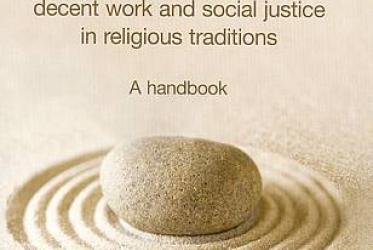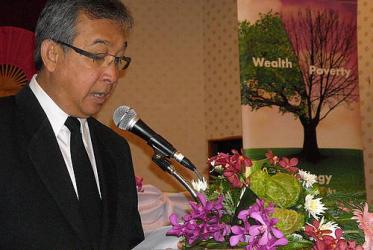Im Nachgang zum Studienprozess über alternative Globalisierung im Dienst von Menschen und Erde (AGAPE), der mit dem auf der 9. Vollversammlung des Ökumenischen Rates der Kirchen (ÖRK) in Porto Alegre 2006 vorgelegten AGAPE-Aufruf endete, rief der ÖRK ein Programm ins Leben, dessen Schwerpunkt darauf lag, die Armut abzuschaffen, der Anhäufung von Reichtum den Kampf anzusagen und die Integrität der Umwelt zu erhalten, und das auf dem Verständnis basierte, dass Armut, Reichtum und Umwelt (Poverty, Wealth and Ecology - PWE) eng miteinander verwoben sind. Das PWE-Programm nahm einen kontinuierlichen Dialog auf mit religiösen, wirtschaftlichen und politischen Akteuren. Zu den Teilnehmenden gehörten ökumenische Führungspersönlichkeiten, Vertreter und leitende Persönlichkeiten aus den Kirchen weltweit, interreligiöse Partner, politische Führungskräfte und soziale Einrichtungen aus einer Vielzahl von Regionen und Nationen der Welt. Regionale Studienprozesse und Konsultationen fanden statt in Afrika (Daressalam) 2007, in Lateinamerika und der Karibik (Guatemala Stadt) 2008, in Asien und im Pazifik (Chiang Mai) 2009, in Europa (Budapest) 2010 und in Nordamerika (Calgary) 2011. Das Programm gipfelte in einem globalen Forum und einer AGAPE-Feier in Bogor, Indonesien, 2012. Der nachfolgende Aufruf zum Handeln ist das Ergebnis eines sechsjährigen Konsultations- und regionalen Studienprozesses, der die Themen Armut, Reichtum und Umwelt miteinander verband.
20 July 2012
WCC Programmes




